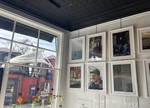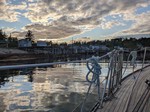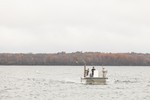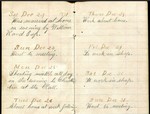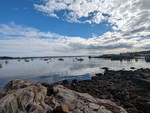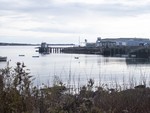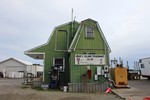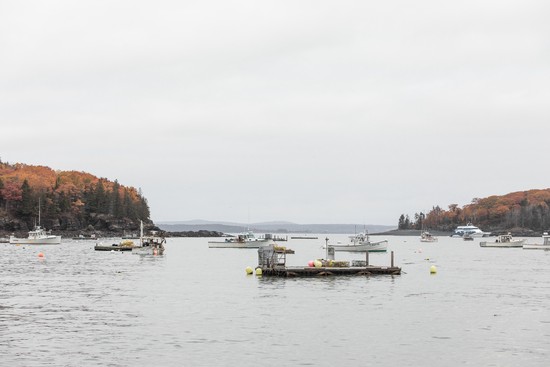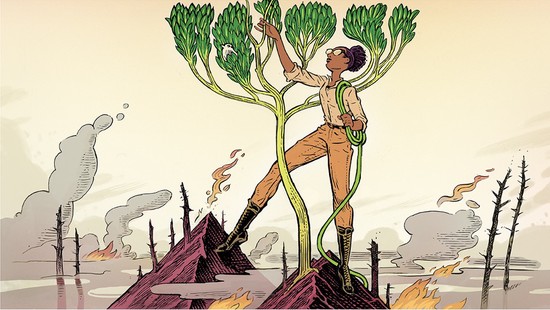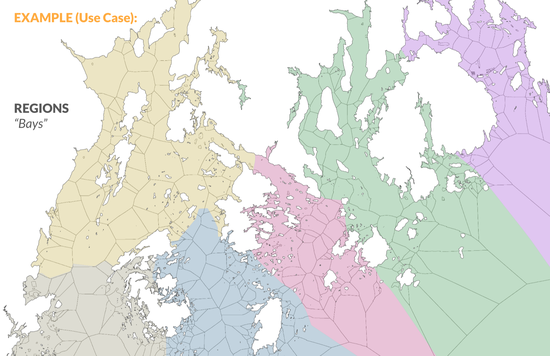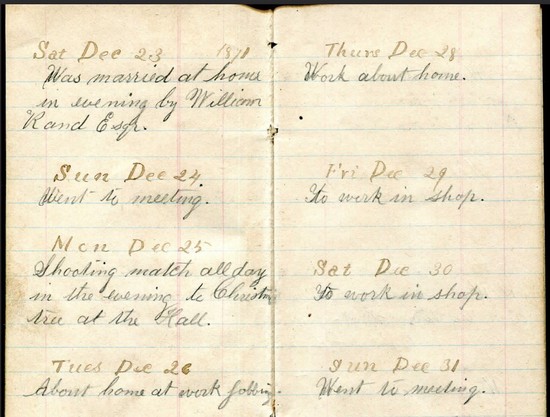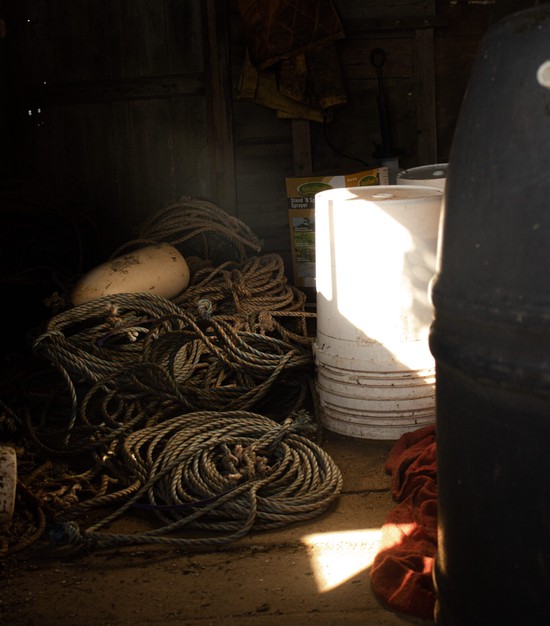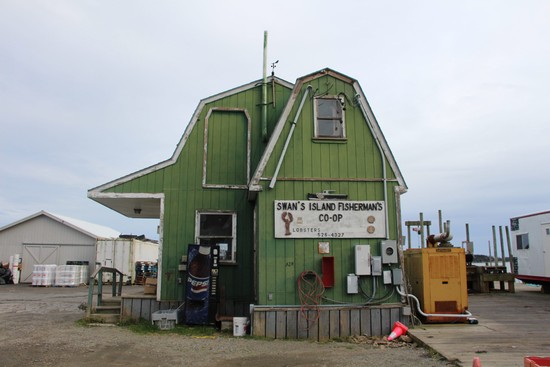Course Description
This three-credit interdisciplinary course will explore how coastal communities, especially around Frenchman Bay have navigated and are navigating major changes in their communities, the Bay, and the ecology around them. This place-based course will use the Bay and surrounding towns to explore how history, geography, audio storytelling, and data science can illuminate, document and nurture community perspectives on their past, present and future. Students will undertake research projects focused on communities and their stories of adaptation to and community members’ reflections on the dramatic changes they have witnessed from the collapse of the cod-fishery, the boom in regional tourism, and the current conflict over federal whale regulations among other transformations within their living memory. The class will provide opportunities to learn about and use skills from data analysis and visualization using the R programming software, oral history and audio story-telling as well as community-based work rooted in both history and geography. This interdisciplinary approach will allow the class to grapple with how projects may help facilitate community conversations about how their inhabitants have used different strategies to adapt in the past and present in ways that could inform their future. The course will involve field trips, overnight stays, and community work throughout the region, so students will have this integrated course in order to spend extended periods of time on the projects they undertake. The course will include time on the water and in communities, and students should expect to spend substantial time on and off campus for the class. Students will be evaluated on short assignments, team projects, and overall level of effort on coursework. This course is appropriate for students from a wide range of backgrounds and both academic and personal experiences, and there are no prerequisites. Given the immersive approach of the class the instructors would encourage students to reach out to the instructors prior to the class.
Additional Course Info
- Meets the following requirements: HS, HY, QR
- Prerequisites: None
- Level: Intermediate
- Course limit: 15
- Lab fee: No lab fee
Course Values, Goals, and Practices
Learning Goals
This course is designed as a community learning journey. Together, we will:
- Co-create an immersive, interdisciplinary learning experience in and out of class with fellow students, instructors, and invited guests.
- Become familiar with the geography of Frenchman Bay and its environment.
- Apply data analysis and visualization techniques as a method for imagining and understanding change and navigation of change.
- Apply theories of adaptation and change (e.g., frameworks) to evaluate different sources of information and to produce an original project describing how communities navigate change.
- Apply audio storytelling skills (interviewing, field recording, audio editing, story structure, and communications) to create original work documenting stories of change.
- Develop a sophisticated understanding of how coastal Maine communities are confronting the changes in the world around them from climate change to social and cultural shifts.
- Become familiar with nautical terminology used for sailing and navigating and be able to identify parts of the boat, navigational markers, and points of sail as well as discussing and recognizing these terms in interviews and historical texts.
- Gain hands-on experience navigating and sailing including reading charts, tying knots, and sailing the 44 foot sail vessel, Rebecca.
Course Materials required:
Journal
You will keep field observation notes in a dedicated journal for the course.
Technology:
- In week 4 we will be programming most days. Bring a laptop to class. We will be using PositCloud, you will get an invitation to create an account.
- If you are in need of a term long loaner laptop, please contact the IT department at helpdesk@coa.edu. Mention that you are taking a data science class, and pick up the laptop in A&S right by the whale skull.
How to checkout audio gear from the COA Library
If Zach is in his office, grab the equipment you need then bring it to the circulation desk to be checked out. If Zach is not in his office, check in with the circulation desk first, and then go into his office to grab what you need. Your name is on a list of people who can check out equipment, so the library staff will know that you’re all set!
Everything defaults to a four hour checkout, but things can be kept longer than that if they are needed/being actively used. Once you are finished using your gear, return it as soon as possible; we want to make sure everyone who needs gear has access to it.
Make sure you are at the circulation desk while your items are being checked out and checked in to make sure all of the items listed as part of the kit are inside the kit and scanned. Otherwise, any missing items are your responsibility to replace.
We will provide batteries for you to use in the equipment; be sure to check battery levels and have extras before going out to record. If you have any questions about borrowing equipment, email Zach Soares zsoares@coa.edu.
Course components
Weekly structure
The class meets on Tuesday, Wednesday, Thursday, and Friday. The typical weekly class schedule will be:
| Day |
Activity |
| Tuesday |
Field Trip or Class |
| Wednesday |
Class |
| Thursday |
Field Trip or Class |
| Friday |
Field Trip or Class |
Outside of class you can expect to spend about 20-25 additional hours on work for a total of 45 hours a week.
Your work will consist of several assignments including:
Homework and Labs
Homework will range from readings and listening to oral histories to audio postcards. We will have a number of interview coding and programming lab sessions in week 3 and 4.
Weekly Journal
As part of the course you will be submitting a weekly journal. After week 0 these journals will be recorded in a dedicated field notebook. These journals will be due at the start of class on Fridays at 13:00. These journals will be where you record your field notes from field trips and write your weekly reflections.
Field Trips
We will be spending a lot of time in the field. For boat trips, please bring: sunscreen, sunglasses, hat, water bottle, lunch and snacks, sneakers or teva-type sandals, swimsuit, towel, lip balm with sunscreen, binoculars, warm fleece/sweater, and a raincoat for rain or wind. For the Soundwalk in Deer Isle in Week 1 you will also need a phone with an internet connection and a set of headphones.
Field trips will be weather dependent. We will still go out if it is raining but sea conditions may shift the schedule of our field trips. We will be navigating weather-related schedule changes together. We will update the schedule for the next week each Friday, so please check the website at the start of each week, keep an eye on your email for schedule changes, and keep Tuesday-Friday (9-6) free of other commitments.
Final project
You will be responsible for the completion of an open ended final project for this course, the goal of which is to study an aspect of change in a community in Frenchman Bay using the tools and techniques covered in class. Your final project will draw on the skills covered in weeks 1-5 and you will work on your project for the last 5 weeks of class. You can find out more about the project themes under projects and guidance for the project under project guidance. You must complete the final project and be in class to present it in order to pass this course. Additional details on the project will be provided in class as the course progresses.
Grades:
A growing body of research indicates that traditional approaches to grading fail to produce the sorts of meaningful learning desired by both teachers and students. Such approaches often reinforce inequitable power dynamics between teachers and students, promote faulty reward systems that disincentive creativity and risk-taking, and devalue important aspects of learning (including revision and feedback). Given this context, instead of a traditional approach to grading in which you do work that is evaluated singularly by me, this course assumes that you opt to take ownership and responsibility over your performance and engagement with the class. To make this happen, this course uses a “contract grading” scheme, which gives you a voice in the grading process, provides you with the agency to specify your intended course performance, and also share in the responsibility for evaluating whether or not you fulfilled your intended obligations. Please see the contract grading document on Google Classroom for a more-fleshed-out explanation of this approach and how it will operate in the course.
You will meet with all of us in Week 5 to discuss your progress in the course so far.
Policies
Academic Integrity (excerpt from Course Catalog)
By enrolling in an academic institution, a student is subscribing to common standards of academic honesty. Any cheating, plagiarism, falsifying or fabricating of data is a breach of such standards. A student must make it their responsibility to not use words or works of others without proper acknowledgement. Plagiarism is unacceptable and evidence of such activity is reported to the provost or their designee. Two violations of academic integrity are grounds for dismissal from the college. Students would request in-class discussions of such questions when complex issues of ethical scholarship arise.
Universal Learning and Learning in Community
Many of us learn in different ways. For example, you may process information by speaking and listening, so while lectures are quite helpful for you, some of the written material may be difficult to absorb. You might have difficulty following lectures, but are able to quickly assimilate written information. You may need to fidget to focus in class. You might take notes best when you can draw a concept. For some of you, speaking in class can be a stressful or daunting experience. For some of you, certain topics or themes might be so traumatic as to be disruptive to learning. The principle of Universal Design for Learning calls for our classrooms, our virtual spaces, our practices and our interactions to be designed to include as many different modes of learning as possible, and is a principle we take seriously in this class.
It is also our goal to create an inclusive classroom, which depends on community building, and which requires everyone to come to class with mutual respect, civility, and a willingness to listen to and observe others. As such the syllabus serves as a contract of some expectations between all members of the class, including ourselves.
If you anticipate or experience any barriers to learning in this course, please reach out to us and your student support advisor. If you have a disability, or think you may have a disability, COA’s Disability Support Services located within the Office of Student Life in Deering Commons to develop a plan for your academic accommodations. You can find out more information in the course catalog under Accommodating students with disabilities. If you have already been approved for accommodations through the Disability Support Services please let us know! We can meet 1-1 to explore concerns and potential options.
Late work, extensions, and special circumstances
All work is due on the stated due date. Due dates are there to help guide your pace through the course and they also allow us to return feedback to you in a timely manner. However, sometimes life gets in the way and you might not be able to turn in your work on time.
If you intend to submit work late for an assignment or project, you must notify us before the original deadline and as soon as the completed work is submitted. This allows us to return feedback to you and lets us know when to check your work.
Wellbeing
We want to make sure that you learn everything you were hoping to learn from this class. If this requires flexibility, please don’t hesitate to ask.
-
You never owe us a personal information about your health (mental or physical) but you’re always welcome to talk to us. If we can’t help, we likely know someone who can.
-
We want you to learn lots of things from this class, but we primarily want you to stay healthy, balanced, and grounded during this crisis.

